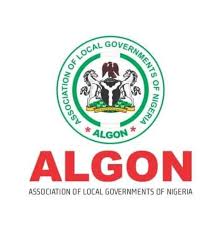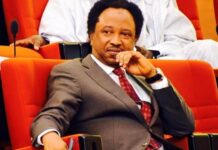No fewer than 21 states in Nigeria are currently operating local government areas (LGAs) with caretaker committees rather than elected councils. This practice contradicts Section 7 of the 1999 Constitution, which mandates that local governments be administered by democratically elected officials. The situation has raised concerns about the mismanagement of funds and the undermining of democratic processes at the grassroots level.
Nigeria has 774 local government areas, but many governors have opted for caretaker committees, bypassing the election of local council officials. This approach has led to accusations of fund mismanagement intended for local administration. Critics argue that the joint accounts operated by state and local governments enable state governors to exert undue influence over local government funds, often leading to inefficiency and corruption.
Recent months have seen a surge in calls for local government autonomy, with President Bola Tinubu among those advocating for this change. In May, the Federal Government took a significant step by filing a suit at the Supreme Court, seeking to compel the 36 state governors to grant full autonomy to local governments.
Currently, the Federal Government receives 52.68% of the country’s monthly revenue, states receive 26.72%, and local governments receive 20.60%. Despite these allocations, local governments’ funds are often controlled by state governments through joint accounts. This control has led to inefficiencies and a lack of accountability at the local level.
Audu Ogbeh, former National Chairman of the Peoples Democratic Party (PDP), has criticized this practice, arguing that local government funds should be deposited directly into accounts controlled by local administrations. Ogbeh highlighted the misuse of funds by state governors, who often appoint loyalists to run local governments and divert funds meant for local development.
In June 2024, Jigawa State dissolved its elected council chairmen, replacing them with caretaker committees. Similarly, Rivers State and Anambra State have recently appointed caretaker chairmen to manage their local governments. This trend of appointing caretaker committees instead of holding elections is widespread across states like Imo, Kwara, Zamfara, and others.

Hakeem Ambali, National President of the National Union of Local Government Employees (NULGE), condemned the constitution of caretaker committees as illegal and a violation of the 1999 Constitution. He urged state governments to respect the rule of law and the constitution, echoing the sentiments of the Federal Government, which has sought judicial intervention to uphold local government autonomy.
The Attorney General of the Federation, Lateef Fagbemi, has taken legal action against the state governors, urging the Supreme Court to prevent the unilateral dissolution of democratically elected local government leaders. The Federal Government’s lawsuit also calls for local government funds to be paid directly to their administrations, bypassing state control.
Legal experts and human rights advocates have joined the call for local government autonomy. Afam Osigwe (SAN) and other legal practitioners argue that the governors’ appointment of caretaker committees is unconstitutional and hampers local governance. They emphasize the need for a constitutional amendment to ensure that local governments receive and manage their funds independently.
The Association of Local Governments of Nigeria (ALGON) also supports this push for autonomy. Itiako Ikpokpo, ALGON’s Director-General, highlighted the need for financial and administrative autonomy for local governments to function effectively.
The ongoing debate and legal battles underscore the critical need for reforms to ensure that local governments in Nigeria are administered democratically and efficiently, in line with constitutional provisions.




